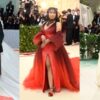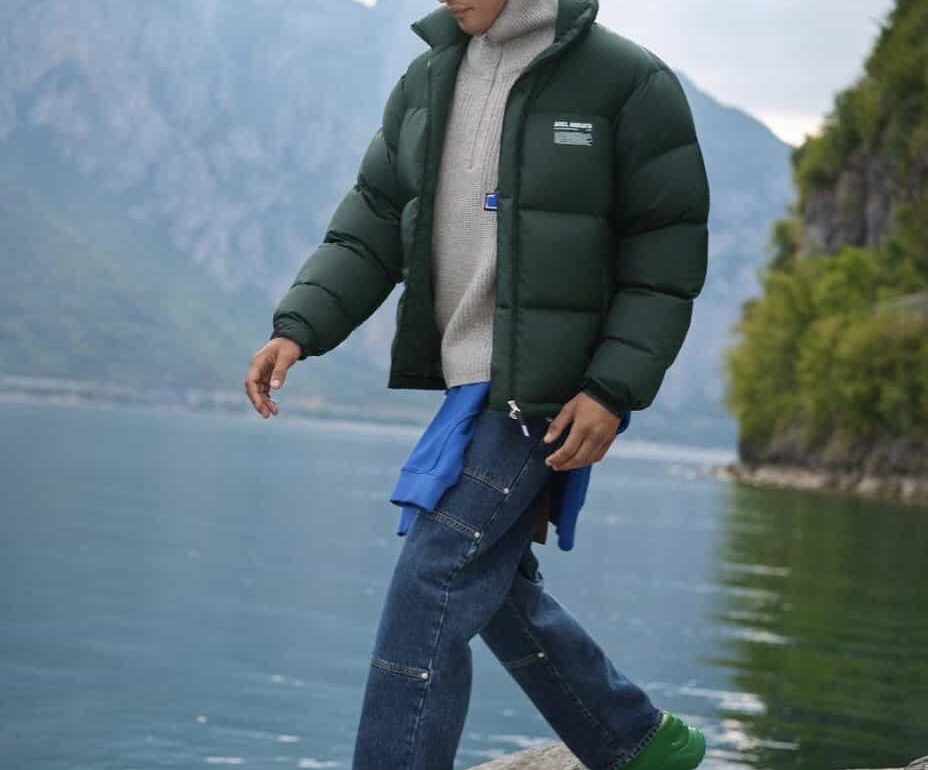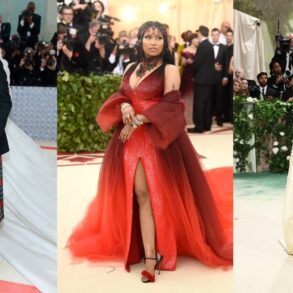The term ‘streetwear‘ once had a straightforward definition, referring to an unflattering style characterized by graphic T-shirts, baggy attire, and sneakers. However, defining the best streetwear brands in today’s fashion landscape has become more complex.
This complexity arises as streetwear has transitioned from its urban roots to the sophisticated runways, blending seamlessly with haute couture. The lines between urban fashion and high-end design have blurred, causing confusion about what truly constitutes a streetwear brand.
In actuality, streetwear clothing brands cover a broader definition. From the hip-hop-inspired old-school styles to the avant-garde new-school trends and everything in between, streetwear has evolved significantly. To clarify the current landscape, this article offers an insight into the best streetwear brands globally, highlighting their significance and appeal.
In comparison to other streetwear giants, or brands that have gone through major evolutions,
In recent years the brand has evolved past its staple shoe line to clothing, accessories, and even a quality home good or two. Focusing largely on what current culture is dictating instead of following the industry, it’s time to consider
Personally, I hope gorpcore streetwear never ends. When functionality meets aesthetics, the gates of fashion heaven open. Tropicfeel is among those brands waiting behind the pearly gates to comfort you and rise to the challenge.
It’s a great idea to introduce some staple performance accessories (think backpack, jackets, or shoes) into your rotation to make sure that your gear can hold up to whatever life throws at you. Luckily, Tropicfeel is also one of the best streetwear brands for outwear so you can style up with trousers and boots.
Listen, streetwear does not always have to be the strangest thing you’ve ever seen, a lot of the time it’s about knowing how to use your wardrobe staples creatively.
If you’re looking to have a little bit of fun in your wardrobe, I would definitely recommend
Shoes are still an important part of an overall look, seriously don’t overlook that step. While brands like
Keeping to mostly sneakers, Løci is a company that is looking to the future. Completely vegan and made from recycled ocean plastic, it’s hard not to feel like you’re getting a double win with any of their shoes (because they look great too).
Established in 1908, you have to think M.C. Overalls is doing something right after all these years. Built to last, it’s not every day you can find a brand that suits streetwear trends while also made for tough work.
It’s especially great to see such quality workwear pieces be truly gender-neutral, made for anyone and everyone. This is the kind of streetwear fashion that would also work well as casual work pieces, most pieces you could easily class up with nicer leather boots and a jacket.
Founded in 2014, Forét, has done an excellent job translating the outdoors into wearable fashion. I’ll say it until I’m blue in the face, good streetwear brands know how to get great staples into your hands so you can come back for those extra pieces that will really make your outfits pop.
At Forét’s core, it creates pieces to remind you to get outside and enjoy the comforts of life (especially to show off those outfits). There’s no reason why you can’t look good and be comfortable at the same time in this streetwear brand.
Who’d have thought that a brand set up to clothe the blue-collar workers of North America in the 1800s would one day mutate into every streetwear aficionado’s go-to label for urban wardrobe essentials?
Carhartt WIP (which stands for ‘Work In Progress’) is the cooler European cousin of Detroit workwear stalwart Carhartt. Since the sub-label launched in 1994, it has transformed the brand from a purveyor of grubby overalls to the backbone of all the coolest kids’ clothing collections. Combining the rugged quality of heritage Carhartt with an eye for contemporary design, WIP has earned a spot as one of the most popular streetwear brands on the planet.
Oregonian OG
A fair share of its success is down to the masterful work of footwear designer Tinker Hatfield, who created some of the brand’s most iconic silhouettes, including the Air Max 1, MAG, and countless Air Jordans. There’s also a smart approach to special partnerships to be thanked, with a long list of hyped collabs that have helped the brand establish itself as one of the leading names in this notoriously picky scene.
If a brand is independent and NYC based, your interest should already have been piqued, considering New York is one of the best places to get streetwear inspired by just walking out your front door.
Ok, so you’ve opened the door, and now it’s time to welcome Corridor into your life. First founded in 2013, it’s hard not to look through each collection and find pieces you’ll love. Corridor does classic staples with a streetwear twist, so you can experiment without feeling like an idiot. If you’re a fan of quality knitwear, go no further.
Like Adidas and
Go to New Balance for the sportier side of streetwear brands, including monochromatic tracksuits, chunky retro trainers, and logo-blasted athleisure.
The Rest of The Best Streetwear Brands
Releasing new items in highly limited weekly drops isn’t the most conventional way to introduce consumers to seasonal collections. Still, when you’ve got queues forming around the block with people who are prepared to sleep on the street just to be in with a chance of copping a brick with your brand’s name on it, well, you must be doing something right.
New York’s Supreme is one of the OG popular streetwear brands and one that revolutionized the scene by throwing the traditional supply and demand model out of the window. It’s a move that has seen the skate brand ascend to become one of the most revered names in fashion today, with collaborations with the likes of Rolex and Louis Vuitton.
If Shawn Stussy hadn’t surfed his way into the T-shirt business back in 1980, today’s fashion landscape would be a very different place. After creating a buzz with its graphic tees, Stüssy the brand branched out into surf and skate apparel, becoming the first real streetwear label, laying a foundation for those to come.
These days, Stüssy is still a driving force for streetwear brands, providing forward-thinking designs while always remaining true to its Californian roots. Granted, it may not have the same clout as some of its hyped-up descendants, but it has stayed respected and steadfast for almost 40 years. Which, in this game, is nothing short of incredible.
When thinking of British brands, it’s usually the heritage names that spring to mind as opposed to genre-bending haute streetwear brands. But with London-based A-Cold-Wall* going from strength to strength in recent years, that could be set to change.
Designer Samuel Ross’s trailblazing imprint straddles the line that divides avant-garde and wearable, earning him nods from several industry heavyweights. His label’s designs use utilitarian silhouettes and fabrics to create fashion-week-worthy streetwear. Oh, and he’s not opposed to sending the odd naked model down the runway either.
Founded in Ura-Harajuku, Tokyo, in 1993, A Bathing Ape (or BAPE) quickly became known as the go-to off-kilter streetwear brand with a Japanese touch. Founder Nigo (real name Tomoaki Nagao) is somewhat of a cult figure in the scene, and his obsession with sneakers, toys, and in-your-face graphics has seen his label grow into one of the most recognizable there is.
Of course, BAPE is best recognized for its bright, multi-colored camouflage prints and shark hoodies that zip right up over the wearer’s face. These bold design motifs have made the brand popular with teenage hypebeasts the world over. Meanwhile, older streetwear fanatics tend to stay clear.
We live in an age when you’re just as likely to see streetwear brands being paraded down the runway as you are being rocked by the urban youth. It’s a shift that has redefined what streetwear actually is, and it’s fair to say Off-White was one of the core labels responsible for the shake-up.
The brand is the brainchild of Virgil Abloh, a designer with a taste for tongue-in-cheek branding who cut his teeth at Fendi while interning alongside Kanye West. After becoming the creative director of Louis Vuitton, he became easily one of the most influential figures in fashion. Abloh’s own brand Off-White has made it into one of the hottest labels on the face of the earth. Think bold prints, ironic labels and high-profile collaborations aplenty.
Hard-to-pronounce names are ten a penny in the world of fashion, and if you thought streetwear was going to be any different, you’d be sorely mistaken. According to the Japanese label’s creators, WTAPS is pronounced ‘double taps’. Although quite where they got that from, we’re not sure.
The brand has made baggy cuts, military and workwear influences and Japanese utilitarian styling its hallmarks. So expect lots of army green, cargo pants and loose-fitting hoodies, with the occasional preppy Ivy League-style curveball thrown in for good measure.
A skate label with a sense of humor (not to mention a knack for whipping hypebeasts into a frenzy), Palace has been putting the UK firmly on the streetwear map since 2010. In the relatively short time it’s been around, the London-born brand has achieved a level of hype not dissimilar to that of its transatlantic doppelganger, Supreme.
The USP of Palace is its sporty aesthetic, with tracksuits, baseball caps, and regular tie-ups with big hitters like Adidas and Reebok forming the core of its output. Safe, however, it is not. So don’t be surprised if you see the odd snakeskin loafer or smoking jacket crop up from time to time.
The brainchild by New York footwear don Ronnie Fieg, Kith operates on two levels. Firstly, it’s a menswear store stocking some of the most coveted names in the sneaker and streetwear world. Secondly, it’s a standalone label, specializing in logo-heavy, urban garments and limited-run collaborations, often with pretty surprising brands.
In the past, Kith has joined forces with names as obscure as Bugaboo, the luxury pram manufacturer, and even Coca-Cola. More recently, it teamed up with Tommy Hilfiger to produce a nostalgia-laden capsule collection and the New York Yankees.
The work of Sk8thing – the guy behind the iconic graphics of Human Made, Billionaire Boys Club, and Ice Cream – and music industry veteran Toby Feltwell, Cav Empt is one of those streetwear brands championed by those who outgrew their Supreme box logo hoodies and went looking for something fresh and exciting.
With an emphasis on unique prints, utilitarian detailing and futuristic styling, the Japanese label has positioned itself as one of the most sought-after names in this post-streetwear age.
Comme des Garçons is a fashion house with a reputation for outlandish designs and bizarre runway shows. However, the label’s Play imprint is known for quite the opposite.
Featuring the iconic bug-eyed heart logo, the output of CDG Play instead focuses on simple staple items like Breton tops, hoodies, and logo tees. There’s also a long-running collaborative effort with Converse which has seen Rei Kawakubo’s brand put its stamp on the Chuck Taylor All-Star 70, creating one of the most popular shoes in streetwear in the process.
Started by two veteran players in Amsterdam’s hip-hop scene, Patta was what happened when a pair of friends with a love of beats, sneakers, and streetwear got together and opened a store to showcase their favorite gear.
In the early days, the Patta logo was printed onto a small batch of tees for family and friends, but as demand grew, this soon evolved into a fully-fledged in-house streetwear brand. The focus is on big logos, loose cuts, and vibrant colors, with seasonal collections routinely flying off shelves in no time at all.
What do you do when you hit your mid-twenties and start to wonder whether or not you should still be rocking an oversized hoodie and Air Jordans at your age? You start shopping at New York-based Noah, of course.
Set up by former Supreme creative director Brenden Babenzien, Noah is streetwear for grown-ups. Offering everything from corduroy caps and collegiate sweats to Oxford shirts and tailoring with a twist, its considered output provides a reliable alternative when the day comes to give up the hype.
Undercover’s weirdly wonderful designs and next-level graphic print T-shirts made it a pillar of the ultra-hip Ura-Harajuku scene in ’90s Tokyo. Today, it’s one of the most respected fashion-leaning labels in streetwear brands and a firm favorite among those in the know.
Originator Jun Takahashi was heavily influenced by the UK punk scene when he was younger, which is visible in some of his more daring designs. Aside from that, Undercover also produces fashion-forward luxury sportswear in collaboration with
Russian photographer-slash-designer Gosha Rubchinskiy’s name doesn’t exactly roll off the tongue. However, the fact his eponymous label is tricky to say (it’s goh-shah rub-chin-skee, by the way) hasn’t stopped it from becoming one of the most talked about streetwear brands in fashion.
Embodying post-soviet youth through his sport and skate-influenced designs and use of young, unconventional models, Rubchinskiy earned the respect of his peers early on and was taken under the wing of Comme des Garçons’ Rei Kawakubo who now assists in the production of his seasonal collections.
One of the founding members of music and fashion collective Been Trill, alongside Virgil Abloh and Alyx’s Matthew Williams, Heron Preston has since gone one to join his two peers (so to speak) in going solo.
His namesake streetwear brand has grown into one of the most influential forces in contemporary fashion while retaining a cult-like status. Think oversized cuts, quirky motifs and signature bright orange branding.
Adidas may not be what first comes to mind when you think of streetwear brands. But then, what is a typical streetwear brand nowadays anyway? Regardless, when you take into account the German sportswear brand is responsible for churning out Kanye West’s Yeezy line of sneakers, it’s inclusion begins to make a bit more sense.
The Yeezy Boost range, designed in conjunction with Ye, produced some of the most talked-about and sought-after shoes in recent history. It also helped to put Adidas firmly on the streetwear map. And now, with the 1990s footwear trend in full swing, Three Stripes’ place within the scene is only becoming better established.
Obey’s founding story starts at Rhode Island School of Design when student Shepard Fairey designed a weird sticker that launched a street art campaign in 1989. Influenced by punk rock, skateboarding, and even politics, Obey is now a worldwide symbol of rebellion.
The clothing line followed in 2001 and today, you can expect to find minimalist designs in bright colors with the logo heavily present from this streetwear brand.
Consider Vetements as the proof in the pudding that streetwear brands have crossed into the world of luxury, and we don’t see it crossing back anytime soon. The punk aesthetic of Vetements comes at premier luxury prices, so brace your wallet for impact if you want to get in on its trendy attire.
Fun fact: Vetements was founded by Demna Gvasalia, now head of Balenciaga, if you needed further clarification that this brand is considered elite. Meaning you probably can’t afford it, unless you’re Cardi B.
Huf is one of the streetwear brands you might know about from way back when. And by way back when, we mean the early 90’s. Keith Hufnagel, the founder and namesake of the brand, launched the first HUF store in San Francisco in 2002, and he carried brands like Supreme and work from Aaron Rose and Haroshi.
Hufnagel expanded the boutique to include his own collections, named eponymously. Recent collabs with Playboy and Pabst Blue Ribbon continue to elevate the lifestyle brand, which sells skateboarding decks and gear along with clothing, never straying far from its roots.
Brain Dead is to streetwear brands as Art Basel is to artists. We think. A collaborative community of creatives (say that three times fast), Brain Dead was formed by Kyle Ng and launched a movement for designers and fashion stars worldwide.
With cool graphics at the forefront, go to Brain Dead if you’re looking for a unique piece that people will definitely notice you re-wearing.
FAQs About Streetwear Brands
What brand is similar to Supreme?
Looking for Supreme-quality streetwear without the high price tag, or just looking to branch out in your wardrobe? Some of the best Supreme alternatives are Vetements, Obey, Noah, Off-White, and Kith.
What clothing brands are rappers wearing?
Every brand on this list has some level of street cred (if us putting it on this list means anything). Rappers wear streetwear brands like Yeezy, Off-White, Supreme, Brain Dead, Carhartt WIP, and more.
What kind of clothes are streetwear?
Look to denim, joggers, chunky sneakers, bucket hats, oversized jackets and sweaters, graphic tees, and anything else comfortable and fashionable to be incorporated into your streetwear wardrobe.
This post was originally published on this site be sure to check out more of their content.







